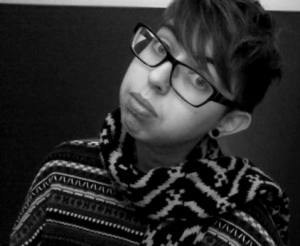LGBT employees in 72 UN-member countries are protected from discrimination in employment, but in another 72 countries, LGBT employees can still be arrested just for being who they are. Every June, the LGBT community celebrates Pride Month because of the historic Stonewall riots of the Gay Liberation Movement in the United States. Fifty years have passed and while there are certain improvements in workplace equality, the LGBT community still has a long way to go in the fight for equal rights. Given the paradox of progress and backlash, it’s important to discuss the role of business leaders and companies in advancing LGBT equality around the world.
Workplace Equality and Its Effects on Individuals
According to the 2019 Workplace Equality Fact Sheet, 46% of LGBT workers reported being closeted at work for fear of backlash against them. If they feel that they need to hide their identity, then it will cause stress and anxiety that could affect their performance in the workplace. LGBT individuals will live in constant fear of being discovered. They can’t even make their work stations feel like home because they can’t put photos of their loved ones or they have to be careful when telling stories so that they won’t be outed.
Organizations that strive for workplace equality will see the positive effects on individual employees such as less discrimination among employees and improved comfort knowing that they can be themselves at work. LGBT-supportive policies can reduce the stress of LGBT employees as well as improve their health, especially if they are given medical and retirement benefits. As a result, they are more satisfied with their job and have more positive relationships with their co-workers and managers.
Inclusive Workplaces and Effects on Companies
With individual benefits, organizational performance will also improve. Employers with LGBT-friendly workplaces have lower expenses when it comes to health insurance because of the improved health of their employees. Employees who are out in the workplace feel that they are welcomed by their co-workers and boss. When employees are comfortable and feel welcomed, they will contribute better to the organization. In this environment, LGBT employees are more engaged and more productive that leads to better company performance.
There are some companies that promote internal policies that prohibit discrimination due to the employees’ gender identity or sexual orientation. In countries that have laws prohibiting LGBT equality, the companies are burdened with the problem of attracting and retaining employees in their companies. Problems might arise about how can two employees be really equal if one is criminalized outside the company. However, companies have seen that workplace inclusion is beneficial to them and works for everyone.
Companies should espouse LGBT-friendly policies so that they get the best person for the job. If companies demonstrate genuine support for their LGBT employees, it will have a huge impact on their employees, their business, and the whole LGBT community. It’s great that there are some companies that can be described as fully inclusive to all individuals regardless of their gender or sexual orientation- but there are thousands more to go.






